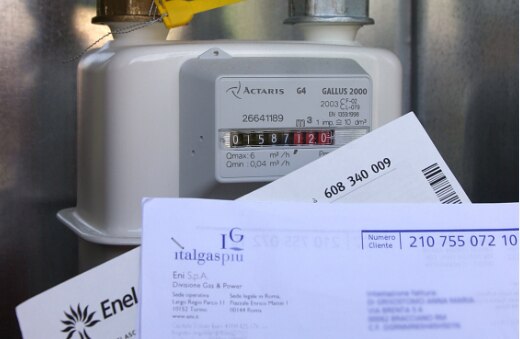Not only the bogeyman of price increases in the bill and maxi adjustments, sometimes already prescribed. To weigh on the pockets of users are increasingly the expenses caused by fraud in the bill.
In the last year, 4 million Italians have fallen victim to a scam or an attempted scam in the field of electricity and gas bills, 28% more than the previous year, with an estimated damage of over 1.2 billion euros, i.e. more than double compared to the previous survey made in May 2022 (+152%).
Impressive numbers, emerged from the survey commissioned by Facile.it to mUp Research and Norstat, which turned the spotlight on a constantly increasing phenomenon and which pushed Facile.it and the Consumerismo No Profit association to join forces and skills to give life to the Stop to Scams project.
"Accomplices of the increase in prices and the desire to save, there are increasingly frequent attempts to defraud families in the electricity and gas sector; therefore, together with Consumerismo No Profit, "We put our experiences at the service of consumers to say, all together, Stop fraud", explains Mario Rasimelli, Managing Director of Electricity and Gas of Facile.it
Bill scams: the means and the favorite victims
The survey highlighted how, within the main items of family expenditure, electricity and gas bills are the area most affected by criminals who, to reach their victims, often use the telephone or door-to-door.
Looking at the methods of deception, it emerges that the fake call center is the most used tool for this kind of fraud, with a percentage that in a year has gone from 44% to 53%, while in one case out of five the scammer knocked directly on the door of the victim's home (21%).
There is no shortage of fraud via the web so much so that, according to the survey, 34% of victims were deceived through a false e-mail, while 14% through a fake website, a percentage almost doubled compared to last year (+90%). On the other hand, the use by malefactors of instant messaging apps and social networks decreases, which in any case represent the tools through which 5% and 4% of respondents have been scammed, respectively.
Interesting data emerged by analyzing the profile of those who have been cheated or, in any case, have suffered an attempt at fraud: respondents aged between 35 and 44 are confirmed to be the favorite category of malefactors, with a percentage of victims equal to 13.3% (compared to a national average of 9.4%).
Looking at the level of education of those who participated in the survey, it emerges that the most cheated are, as in the previous survey, respondents with a university degree, with a percentage of victims equal to 13%, a value up by 31%.
Subdividing the sample on a territorial basis, however, it emerges that if in the previous survey the area most affected by fraudsters was the North East, this year the sad record belongs to the North West, with a percentage equal to 11.6%.
Handle
Expensive bills
6 out of 10 people do not report the scam
How do victims behave after a scam? Almost 6 out of 10 said they had not reported the incident (58%), a percentage equal to over 2.3 million individuals; A sobering figure that becomes even more worrying if we consider that the number of people who have adopted this attitude has increased (+37%) compared to the previous survey.
Behind the choice not to go to the police station there are often reasons related to the amount of the single scam, so much so that 35% said they had not reported because the economic damage suffered was contained, while 25% because it was certain that it would not have recovered what was lost anyway.
It is also sobering to see how more and more victims do not report fraud for psychological reasons: 19% because "they felt naïve for falling for it" (an increase of 27% compared to the previous survey), while 10% because "they did not want family members to find out" (a figure up by over 200%).
"The good news is that it often takes very little to avoid falling into a trap. The ways in which fraudsters try to deceive victims are always the same; therefore, once the recurring patterns have been identified, it becomes easy to set off an alarm bell before it is too late", as Luigi Gabriele, President of Consumerismo No Profit explains in this video.

